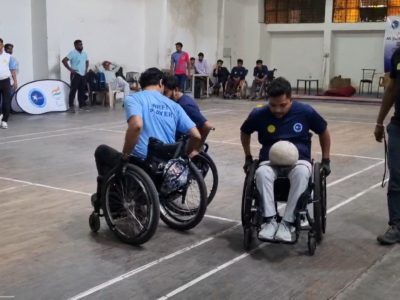Women journalists are telling stories that Big Media won’t. The movement must now become inclusive
Indian media houses are abuzz as past and present employees have disclosed instances of sexual harassment, assault and power play. Over the past week, these women from a section of (mostly) the English media stood in solidarity with each other, telling their stories.
The impact has been swift and almost unprecedented.
• HuffPost India’s editor-in-chief, Aman Sethi, released a statement on allegations against their former employees, Anurag Verma and Utsav Chakraborty, saying they would check “if there were any similar allegations while they were here”.
• The Quint reported on allegations against their senior correspondent, Meghnad Bose, who later apologised on Twitter.
• Business Standard has initiated “due process” to look into allegations against their principal correspondent Mayank Jain, who had previously worked with Scroll and Bloomberg Quint, both of whom have issued statements. Jain has now tendered his resignation.
• Based on allegations, national political editor and chief of bureau of Hindustan Times Prashant Jha has stepped down.
• Most recently, accusations have surfaced against former journalist MJ Akbar, who is currently Minister of State for External Affairs. And this is just to name a few.
It’s an important moment in India—almost exactly a year to the day after The New York Times published its Harvey Weinstein investigation. It’s also nearly a year since Raya Sarkar’s list came out on sexual predators in India’s academic spaces.
While it was NYT and New Yorker’s in-depth investigative reporting that dethroned the likes of Weinstein, it is social media that has provided women in India with a cathartic and empowering space to be heard and validated. Sandhya Menon called out Gautam Adhikari, former chief editor of DNA, for kissing her without consent. The next day, on October 6, another allegation of assault was made against Adhikari by a professor at Seattle University, Sonora Jha. She tweeted: “He tried to push me into his hotel bed but I pushed him away and managed to run out the door.” At the time, both Sonora Jha and Adhikari were working at The Times of India, Bangalore.

Lack of institutional action is one reason why sexual harassment in the workplace continues with such impunity. Lack of financial support prevents reporters from quitting their jobs. Backlash is a common thread in many stories, as in that of journalist Padma Priya D, who came forward with allegations of sexual harassment when she was a cub reporter with The Hindu in Hyderabad in 2009. Two days after her complaint, the accused was asked to go on leave and subsequently, was asked to quit.
Speaking to Newslaundry, Priya said, “For me, I thought that the ordeal ended with him being let go. But I was so mistaken. Most of the men started looking at me as a woman who would go and complain. Very flippantly, I was asked if they could talk to me, hang around with me or if I would file a complaint of sexual harassment against them.”
Being on the receiving end of disbelief, ridicule and anger of peers and colleagues is a serious deterrent when it comes to reporting sexual harassment in the workplace. On October 6, Avantika Mehta, a former lawyer who was a legal correspondent with Hindustan Times in 2014, came forward with allegations against Prashant Jha, who was national political editor and chief of bureau of Hindustan Times. At the time of the incident, Mehta was not employed with the newspaper. Writing about the incident, Mehta states she did everything to “not piss him off” when he said he wanted to hit on her, because she knew that “pissing off a man who’s considered a darling journalist will have shit repucuasions [sic] for my career and/or I’ll be at the receiving end of his friend’s wrath or laughter”.
She also told him he was making her uncomfortable but Jha continued along the same lines.
Sandhya Menon wrote about another current employee of Hindustan Times, their senior associate editor Manojan Ramachandran. In 2005, when both Menon and Ramachandran were with DNA, Ramachandran had texted her, saying, “I want to f&$@ you.”
When Newslaundry contacted Hindustan Times general counsel Dinesh Mittal, we were informed that Jha has been asked to step down from all managerial positions. He will, however, continue to be an employee at Hindustan Times pending further investigations. Mittal also stated that the POSH committee is investigating Ramachandran’s case as well.
Another allegation of sexual harassment has been made against a former editor (South India) at India Today. The harassment allegedly began in October 2014 up till January 2015, when the 24-year-old employee resigned. The employee wrote, “He started off with saying that he is lonely, wife has no time … He would be persistent until I yielded and if I would say that this is inappropriate or that I don’t like it, he would immediately say things like, oh this is just a joke, don’t be so judgemental, I’m just saying this because I think you are my friend etc.”
When the reporter was unresponsive to the editor’s messages, her stories wouldn’t be aired, she alleged, adding, “Since I had fought a lot to get in this field … I thought if I just agreed, I would be able to do my work.” This shame and guilt of having complied with the editor’s advances on texts made the reporter quit her job. She said, “That made me so ashamed of myself. One day I just quit the job and never went back to journalism. My fault was that I complied.”
Institutional action
The Supreme Court judgement in 1997 laid down a clear definition of sexual harassment, which was reiterated in the Sexual Harassment of Women at Workplace (Prevention, Prohibition and Redressal) Act, 2013. Despite this, as journalist Neha Dixit says, most news organisations did not have an Internal Complaints Committee till three or four years ago. Dixit says, “This is why even when written or verbal complaints have been made, nothing has happened in a very organised manner such that the news organisation takes cognisance.”
Dixit also says this institutional mechanism—or lack thereof—puts the onus on complainants to take action.
While it’s difficult for companies and Internal Complaint Committees to legally take action against employees for incidents of harassment outside the workplace, to someone who is not also an employee, these stories do provide impetus to women within the workplace to speak up. Dixit says, “At least there is some acknowledgement now that there is sexual harassment at work. Nobody disbelieves you to that degree. But having said that, implementation is a big problem. Even if you follow due process, nothing comes of it. So if there is no institutional will from within the media organisations or the top editors to enforce it, then it is never going to happen.”
Menon says the conversations have to keep going, and media houses “need to give us the space to write [about our experiences]”. Priya believes collectives such as the Network for Women in Media in India play a critical role in educating and supporting women in media—not just in English but also in the regional press, where they need more support.
Organisations also need to check who populate their complaint committees. Nishita Jha, global women’s rights reporter at Buzzfeed News, says, “Often the committee is stacked with people who have known the accused for a long time. Or the accused often is a person in a position of power, misusing their position, and this disbalance continues to feed into the committee.” It doesn’t help that the complainants often have fewer years with the company when compared to the accused, adding to the disbalance. Suruchi Suri, a lawyer in the Delhi High Court, says if committee biases against the complainant exist, there is a process of escalation to the civil courts—which again puts the onus on the women.
It’s crucial to remember that the majority of the stories coming out in the past few days represent a very small section of upper-class, upper-caste, English-speaking women in the media, who have been able to put forth their experiences using social media as a platform. It’s necessary that a movement becomes inclusive and supportive beyond the boundaries of the privileged, and hopefully, this can and will happen.
Full disclosure: Newslaundry’s Internal Complaints Committee is investigating accusations made against their employee
www.newslaundry.com




